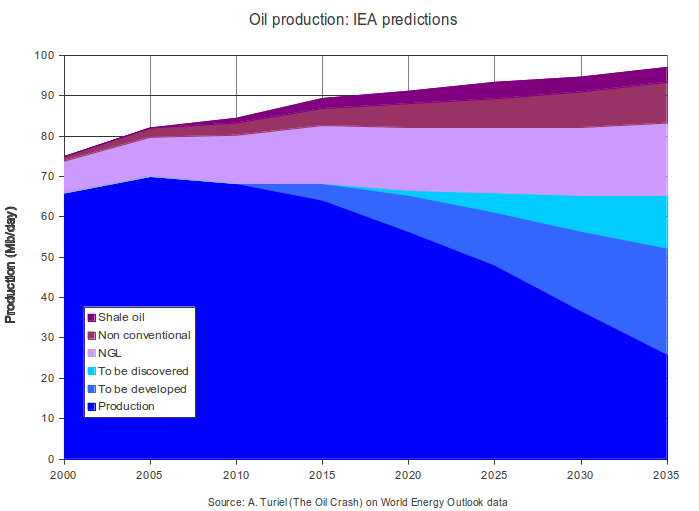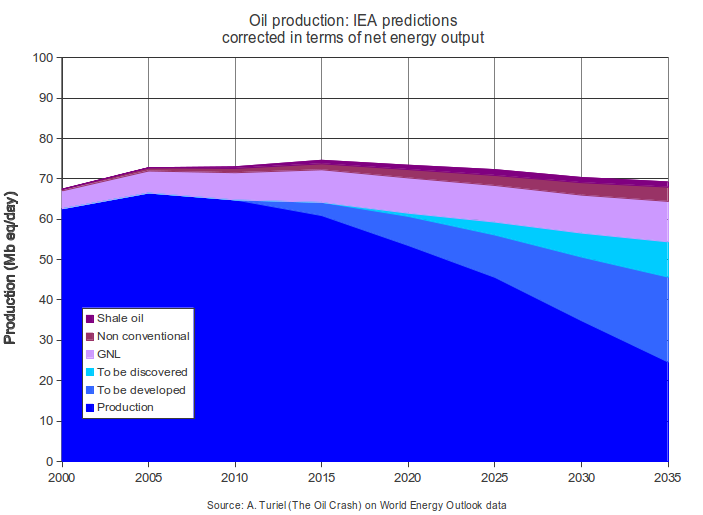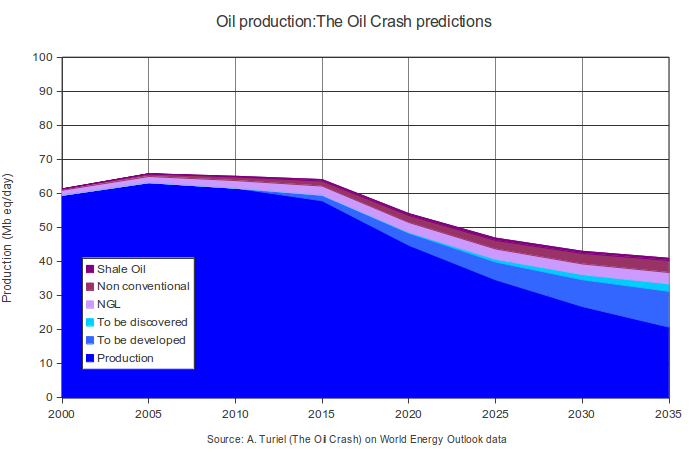Looks like the amount of available net energy from hydrocarbon sources has peaked and is currently on the bumpy plateau. It's when the bumpy plateau ends - that'll be when the fun and games start for real.
Here's an interesting article from Nafeez Mosaddeq Ahmed that backs this premise up:
Delving deeper into the available data shows that we are already in the throes of a global energy transition in which the age of cheap oil is well and truly over. For most serious analysts, far from signifying a world running out of oil, "peak oil" refers simply to the point when, due to a combination of below-ground geological constraints and above-ground economic factors, oil becomes increasingly and irreversibly more difficult and expensive to produce.
That point is now. U.S. Energy Information Administration (EIA) data confirms that despite the United States producing a "total oil supply" of 10 million barrels per day (up by 2.1 mbd since January 2005), world crude oil production remains on the largely flat, undulating plateau it has been on since it stopped rising that very year at around 74 million barrels per day (mbd). According to John Hofmeister, former president of Shell Oil, "flat production for the most part" over the last decade has dovetailed with annual decline rates for existing fields of about "4 to 5 million bpd." Combined with "constant growing demand" from China and emerging markets, he argues, this will underpin higher oil prices for the foreseeable future.
Calling the current situation for what it is
Finally, oil prices would be much higher if not for the fact that governments are heavily subsidising fossil fuels. The WEO revealed that fossil fuel subsidies increased 30 percent to $523 billion in 2011, masking the threat of high prices.
Therefore, world conventional oil production is already on a fluctuating plateau and we are increasingly dependent on more expensive unconventional sources. The age of cheap oil abundance is over.
So Governments are increasing fossil fuel subsidies rather than transitioning away from them. No surprise there

Still, got to love his conclusion:
Black gold, it would seem, is not the answer to our problems
Article in fullA common mistake that people make when trying to design something completely foolproof is to underestimate the ingenuity of complete fools - Douglas Adams.


